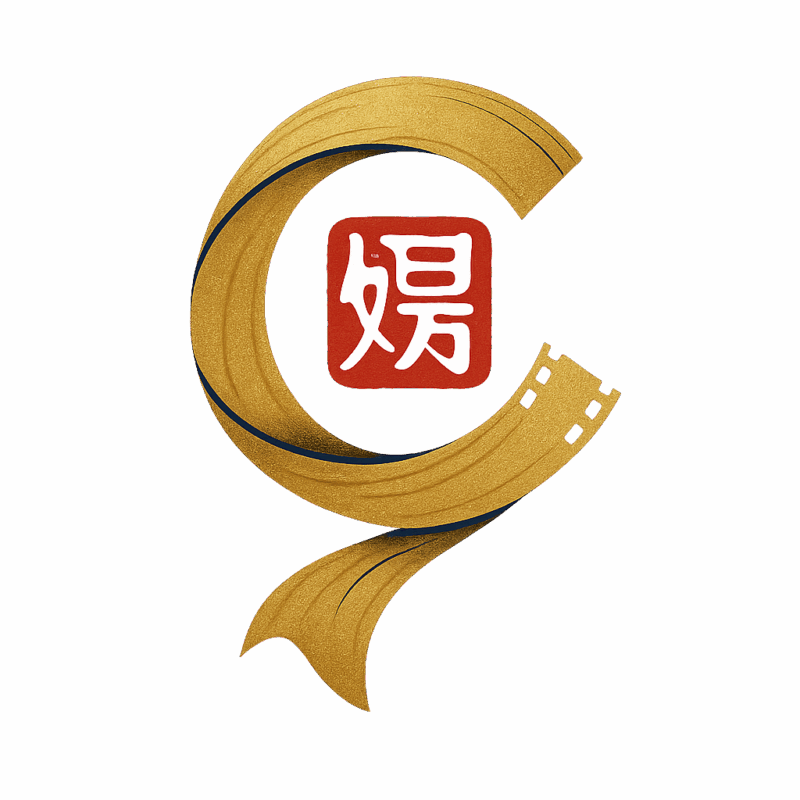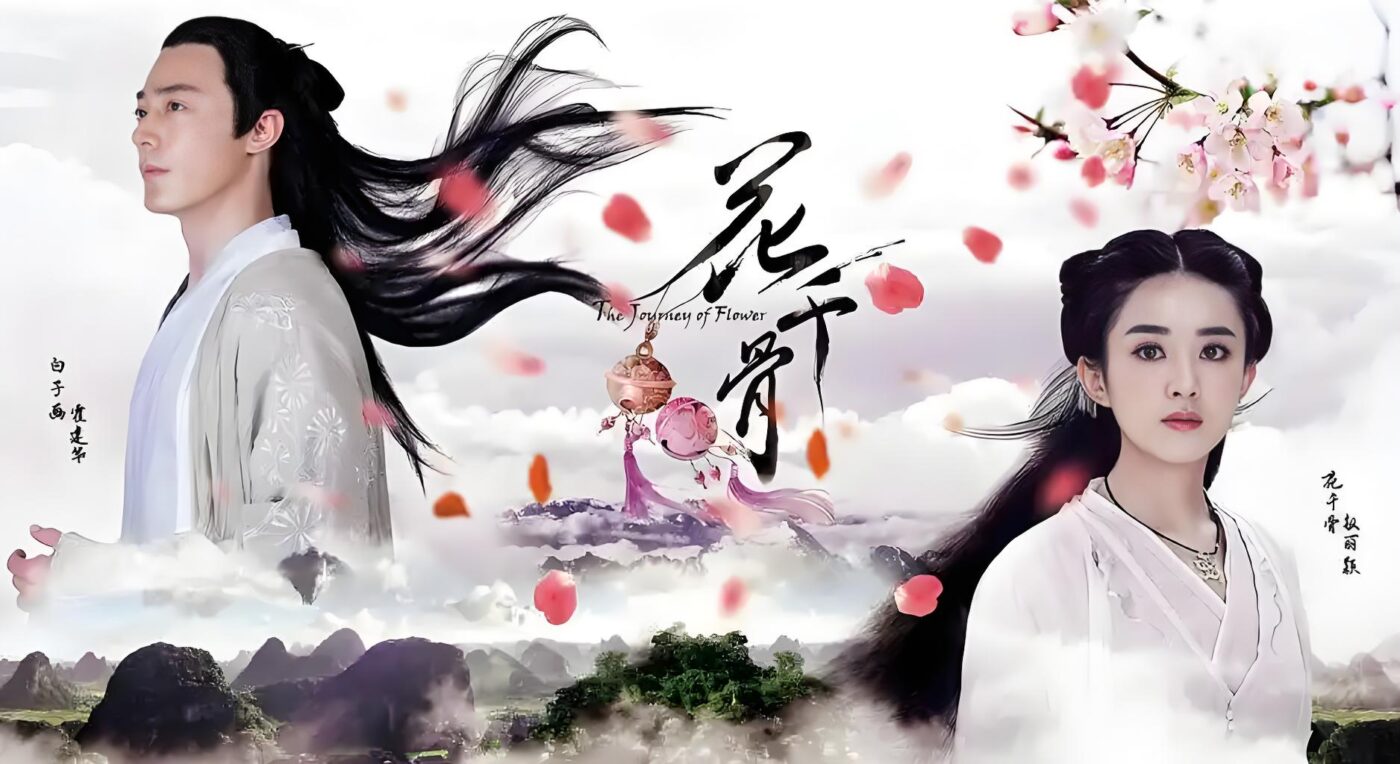The Journey of Flower (花千骨) is a Chinese fantasy drama series based on the popular novel of the same name by Fresh Guoguo. Released in 2015, the show blends elements of romance, action, and supernatural fantasy, creating a compelling narrative set in a world where immortals, demons, and mortals coexist. The series revolves around Hua Qiangu, a kind-hearted but cursed young girl destined to bring calamity to those around her, and her complex relationship with Bai Zihua, a powerful and stoic immortal who becomes her teacher.
The drama’s combination of traditional Chinese mythology, epic romance, and moral dilemmas captured the hearts of viewers, making it one of the most popular Chinese dramas of its time. Its themes of love, sacrifice, loyalty, and the battle between good and evil resonated with audiences, especially in the context of its richly imagined fantasy world.
Plot Summary
The story follows Hua Qiangu (played by Zhao Liying), a young orphan with an ill-fated destiny. Born under a cursed star, Hua Qiangu brings misfortune to those she cares about, leaving her ostracized by the village and lonely. Despite this, she retains her kindness and a determination to seek the truth behind her mysterious birth. Upon discovering that she has a natural affinity for the supernatural world, Hua Qiangu embarks on a journey to Changliu Sect, a renowned school for immortals, hoping to learn how to control her powers and avoid causing harm to others.
At the heart of her journey is her relationship with Bai Zihua (played by Wallace Huo), the leader of the Changliu Sect. Bai Zihua is an immortal known for his wisdom, strength, and strict adherence to justice. Despite his initial reservations, Bai Zihua takes Hua Qiangu under his wing, teaching her the ways of immortals and guiding her in her development. However, their teacher-student bond soon transforms into something deeper and more complicated.
The tension between their growing affection and Bai Zihua’s rigid sense of duty leads to a series of heartbreaking events. As Hua Qiangu learns about her tragic destiny and the dark forces threatening the world, she must navigate the complexities of love, sacrifice, and power. The series explores whether love can transcend the boundaries of mortality and divinity, and whether one can choose between personal desires and the greater good.
Main Characters
- Hua Qiangu (Zhao Liying)
Hua Qiangu is the protagonist, a strong-willed yet gentle-hearted girl who is fated to bring misfortune to those she loves. Despite her cursed fate, Hua Qiangu strives to live a normal life and learns the ways of cultivation to protect the people she cares about. Over time, her journey becomes one of love, loss, and self-realization as she discovers the true nature of her powers and the sacrifices she must make. - Bai Zihua (Wallace Huo)
Bai Zihua is the aloof and righteous leader of Changliu Sect and the teacher of Hua Qiangu. As one of the most powerful immortals, Bai Zihua is committed to maintaining peace and balance in the mortal and immortal worlds. His deep sense of duty conflicts with the feelings he develops for Hua Qiangu, and his internal struggle between love and responsibility forms a central tension in the story. - Sha Qianmo (Jiang Xin)
Sha Qianmo, also known as the Demon Lord, is one of the key antagonists in the story. His relationship with Hua Qiangu is ambiguous, as he both protects her and has his own ambitions. Sha Qianmo’s complex character adds depth to the narrative, as he challenges the conventional ideas of good and evil. - Dongfang Yuqing (Zhang Danfeng)
Dongfang Yuqing is a close friend of Hua Qiangu and secretly harbors feelings for her. He is intelligent, loyal, and plays a crucial role in protecting her from danger. His unrequited love for Hua Qiangu introduces another emotional layer to the story, showcasing themes of loyalty, sacrifice, and heartache. - Ni Mantian (An Yuexi)
Ni Mantian is one of the students at Changliu Sect and serves as a rival to Hua Qiangu. Her jealousy and ambition lead her down a darker path as she seeks to prove her superiority. Ni Mantian’s character provides a counterbalance to Hua Qiangu’s innocence and purity.
Themes and Motifs
The Journey of Flower explores several key themes that have resonated with audiences. These include:
- Love and Sacrifice: At its core, the series revolves around the tension between personal desires and self-sacrifice. The forbidden love between Hua Qiangu and Bai Zihua serves as the emotional heart of the story, with both characters making difficult choices in the name of love and duty.
- Destiny and Free Will: Hua Qiangu’s journey is driven by her attempts to break free from her cursed fate. The series poses the question of whether individuals are bound by destiny or if they can forge their own paths through their choices and actions.
- Good vs. Evil: The battle between the forces of light and darkness is a recurring motif in the series. However, The Journey of Flower complicates this traditional binary by showing that even those who are considered “good” (like Bai Zihua) can make morally ambiguous choices, and those deemed “evil” (like Sha Qianmo) can have redeeming qualities.
- Power and Corruption: The series also delves into the corrupting influence of power. As Hua Qiangu becomes more powerful, she is faced with the temptation to use her abilities in ways that could lead to unintended consequences. This theme highlights the dangers of unchecked ambition and the importance of self-control.
- Loyalty and Betrayal: Loyalty is a central theme in the relationships between the characters. The love and loyalty Hua Qiangu shares with her friends and teacher are put to the test as she grapples with betrayals and difficult decisions.
Reception and Cultural Impact
The Journey of Flower was a massive hit when it aired in 2015, garnering millions of viewers across China and internationally. Its success can be attributed to several factors:
- Star Power: Zhao Liying and Wallace Huo were already well-known actors with established fan bases. Their performances, particularly Zhao Liying’s portrayal of the naive yet determined Hua Qiangu, drew widespread praise. The chemistry between the leads helped drive the emotional depth of the story.
- Visual Aesthetic: The series featured stunning cinematography and costume design that captured the beauty of Chinese fantasy settings. The elaborate sets, special effects, and fight choreography added to the immersive experience, drawing audiences into the mystical world of immortals and demons.
- Emotional Depth: The series struck a chord with viewers due to its emotional intensity. The love story between Hua Qiangu and Bai Zihua, filled with yearning and heartbreak, resonated with audiences, who were drawn to the characters’ struggles and sacrifices.
- Moral Complexity: Unlike many traditional fantasy dramas that have clear distinctions between good and evil, The Journey of Flower presented morally complex characters who struggled with their choices. This added nuance and depth to the story, making it more engaging for viewers who sought a richer narrative experience.
Controversies and Censorship
Despite its popularity, The Journey of Flower was not without controversy. Chinese regulators imposed censorship on the series due to its themes of forbidden love and certain violent scenes. The romantic tension between Hua Qiangu and Bai Zihua, given the teacher-student dynamic, was deemed inappropriate by some regulators. As a result, several scenes were either cut or modified in the broadcast version, sparking debate among fans.
Nonetheless, these controversies did little to dampen the show’s success. In fact, they may have contributed to its cultural impact, as fans discussed the themes of love and morality in the context of Chinese societal norms.
Legacy and Influence
The Journey of Flower helped pave the way for future Chinese fantasy dramas, particularly in the xianxia (immortal heroes) genre. Its blend of romance, action, and mythology set a new standard for similar productions, influencing subsequent series like Eternal Love (三生三世十里桃花) and The Untamed (陈情令).
The series also solidified Zhao Liying‘s status as one of China’s top actresses. Her portrayal of Hua Qiangu remains one of her most iconic roles, and it helped elevate her career to new heights.
Conclusion
The Journey of Flower is a timeless tale of love, fate, and sacrifice, set in a beautifully crafted fantasy world. Its complex characters, emotional storytelling, and stunning visuals have left a lasting impact on Chinese television. As one of the most successful xianxia dramas, it continues to be beloved by fans for its exploration of moral dilemmas and the enduring power of love.

